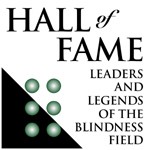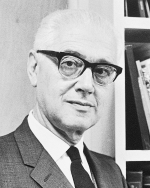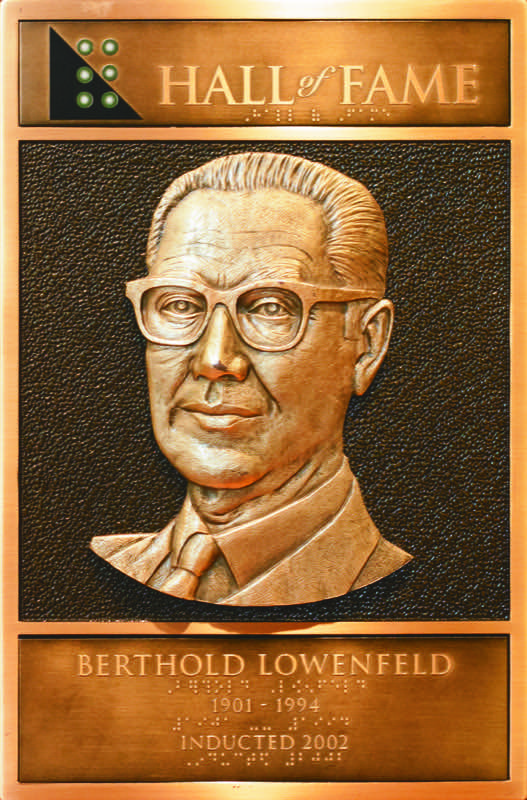Berthold Lowenfeld
Inducted 2002
Berthold Lowenfeld (1901-1994) was born in Linz, Austria. He graduated from the University of Vienna in 1927 with a Ph.D. in Psychology. In 1922, while still a student, he began teaching at the Jewish School for the Blind, Hohe Warte, in Vienna where he worked until 1930, when he was awarded a Rockefeller Fellowship to study the education of blind children in the United States. Prior to leaving for the U.S., he married his beloved Greta, and they often referred to their year abroad as their "honeymoon."
In 1938, the Lowenfelds move permanently to the United States with Kathryn Maxfield, an educator working for the American Foundation for the Blind, as their sponsor. They settled in New York, and soon both the Lowenfelds were working part-time for the New York Institute for the Education of the Blind, a residential school in the Bronx.
Shortly thereafter, Robert Irwin, the Director of the American Foundation for the Blind (AFB), offered Berthold Lowenfeld a research position in order to study the feasibility of "talking books" for the blind. Subsequently, he became the Director of Research for AFB, a position he held from 1939 until 1949. His research into talking books, needs of preschool blind children, and the attributes of local day school programs for blind children were among his most profound and lasting contributions during this time. From 1944 until 1949, he was also teaching university courses in education of blind children for Teacher’s College, Columbia University. In 1948 he served as president of the National Braille Club.
From 1949 until his retirement in 1964, Berthold Lowenfeld served as the Superintendent of the California School for the Blind. He made a deep and lasting impression on the characteristics and responsibilities of schools for the blind which is still very evident today. He also became the most vocal and persistent advocate for blind children having the opportunity to attend their local schools. He never viewed his role with a school for the blind and his advocacy for local school placements as being contradictory. Rather, he constantly reminded his colleagues that if they assessed children well, determined the environment in which they would best learn, and provided the appropriate resources, local schools and residential schools would both flourish.
Berthold Lowenfeld’s contributions to the literature on blindness are known and deeply respected throughout the world. Two of his books, Our Blind Children, and The Changing Status of the Blind, are classics in the field and timeless in relevance. This exceptional writer has additionally given us three other books, over 100 articles, numerous book chapters, and many other documents. At the 1992 AER International Conference, he was the recipient of the distinguished C. Warren Bledsoe Award to recognize a lifetime achievement of outstanding contribution to the blindness professional literature.
Videos
A Special Interview with Abel, Taylor, and Lowenfeld. Hosted by Susan Spungin, 1987:
Download A Special Interview with Abel, Taylor, and Lowenfeld video
Dedication of the Berthold Lowenfeld Redwood Grove. University of California, 1985:
Download Dedication of the Berthold Lowenfeld Redwood Grove video
Berthold Lowenfeld: A Personal History. Interviewed by Pete Wurzburger and Phil Hatlen, 1988:
Download Berthold Lowenfeld: A Personal History video
Berthold Lowenfeld Library Dedication. San Francisco State University, 1985:
Download Berthold Lowenfeld Library Dedication video
The Changing Status of the Blind, a lecture by Berthold Lowenfeld. Introduction by Sally Mangold, 1986:
Download The Changing Status of the Blind video
An Historical Discussion, with Georgie Lee Abel, Nancy Akeson, Kathern Gruber, and Berthold Lowenfeld. Moderated by Phil Hatlen, mid 1970s:
Download An Historical Discussion video
Dedication of the Helen Keller Hall University of California, Berkeley, 1987:


